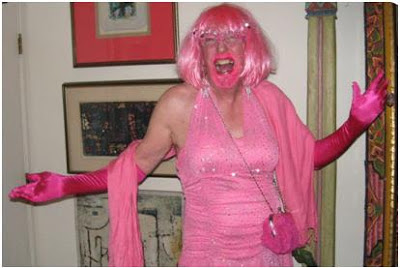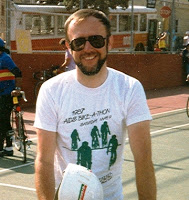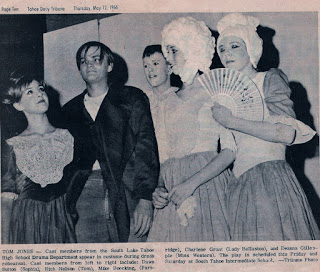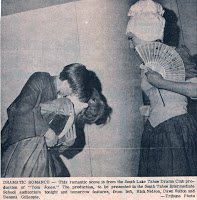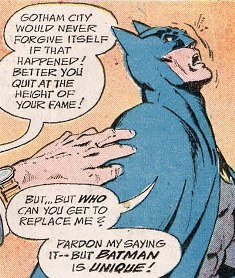Jamie and I never thought we would get
married. Through all the debate over gay marriage, we never felt really drawn
to it. We never thought about going to Massachusetts or to Canada as friends of
ours had to get hitched. We didn’t jump onto an airplane in February 2004 and
head to San Francisco when Mayor Gavin Newsum started issuing marriage licenses
and Jamie’s mom inquired as to whether or not we would—as I’m sure she deeply
wished. Long active in the struggle for gay marriage, she had flung herself
into that fray by driving up to the city from Menlo Park to volunteer as a
witness for couples who showed up at San Francisco City Hall. Her fondest hope
was to see her gay son married someday.
Jamie and I always said that, yes, we would
like to marry but only when it became immediately and practically real where we
live—in Colorado—and that did not look too likely in our lifetimes. We knew who
we were and we were confident about our love for and commitment to one another
so until legal realities caught up with our reality, we stayed home.
We did take care to put in place any legal
arrangements available to protect our relationship. We had our last wills and
testaments, legal powers of attorney, medical directives, medical powers of
attorney, house ownership agreement, and even, our official certificate of
domestic partnership from the City and County of Denver. We even carry these
documents with us in our cars should we ever need them in an emergency without
time to go home and retrieve them. We were set.
Of course, it all depended on the whim of whomever
might challenge us as to whether any of our documents and legal constructions
would work. Because, of course, we weren’t married.
Married couples don’t ever have to produce legal documents to justify
themselves.
Then May 15, 2008 happened. The California
Supreme Court ruled that the State of California had no justification to
prohibit the marriage of two people of the same gender. It amounted to
discrimination. California was liberated.
When I heard the news flash on the radio, my
instant response was: Let’s go home to California, where we used to live and
still had family and friends, and get married.
That day, Jamie was with his mom in Minnesota
visiting friends and relatives and my big worry was that she, with her activism
for marriage equality, would start lobbying for her son and prospective
son-in-law to do the wedding march ASAP. That, I feared, would only spark
Jamie’s resistance—we had so often said that marriage was not for us until some
unspecifiable time in the future, i.e., probably never. And there’s nothing
like a nagging mother to produce a quick “No.”
I hastily phoned him on his cell hoping to
short circuit what I imagined to be my mother-in-law’s certain campaign. Yes,
he and mom had heard the news and talked about it, he said. But, no, she hadn’t
been urging him/us to wed. She must really want this to happen, I thought;
she’s laying low. The motherly artillery was for now quiet.
I had my opening. I asked Jamie if he wanted
to go to California and get married, the closest to a proposal I’d ever make.
And he replied, to my surprise, that, yea, he would, the closest to a yes, I’d
ever hear.
I can’t explain this sudden turn about in
feelings toward getting married. We still would gain nothing in the state where
we lived. In fact, marriage was still as legally empty for us as it ever was.
Nothing would change. Maybe because we met and lived together in San Francisco
before moving to Denver and still had family and friends there and are always
going there that California is still was kind of home. It just felt like the
right thing for us to do. And that’s how we entered the dazzling world of
wedding planning. We were going all the way—a church wedding and catered
reception. Mom was paying.
From indifferent to ardent believers in 30
seconds. I’ve heard all the jokes—and told them—about marriage being a
wonderful institution but who wants to live in an institution. I guess we just
gave into the romance of the idea. Isn’t that why people get married
everywhere? It’s the romance, never mind the legal goodies, which, after all,
we now qualified for in at least 6 states and the District of Columbia. Of
course, we were also entering a legal Alice in Wonderland as to which rights we
had depending on which geographical location we were in. We could get bigger
and then we could get smaller.
We’ve never regretted our marriage. In fact,
we were both kind of surprised that it did seem to make a difference. We began
to think of ourselves in different terms as more than a couple, but a
recognized and sanctioned couple. It isn’t just straight people who have to
adjust their idea of marriage to include gay and lesbian couples. Now that we
have something we never in our wildest imaginations thought we would ever have,
we too wonder what this means. Are we changing the definition of marriage, like
the gay-haters say? Well, I hope so.
What, for example, do we call ourselves?
Spouses? Husbands? I don’t like the term “husband”—it implies there’s a “wife”
somewhere—but it does spell it all out in just one word and we’ve come to use
it. We love each other, we’re committed to each other, we share property, we
can make decisions for each other, and we have sex. No explanations are needed
as to who my “friend” is.
There’s a catch, though, Here’s the catch. We can’t get divorced. Anyone can go to California and get married. Only legal residents of California can use divorce court. We’re not residents. So, we are stuck. Stuck with each other for life. But that’s just where we want to be.
About the Author
Nicholas
grew up in Cleveland, then grew up in San Francisco, and is now growing up in
Denver. He retired from work with non-profits in 2009 and now bicycles,
gardens, cooks, does yoga, writes stories, and loves to go out for coffee.
